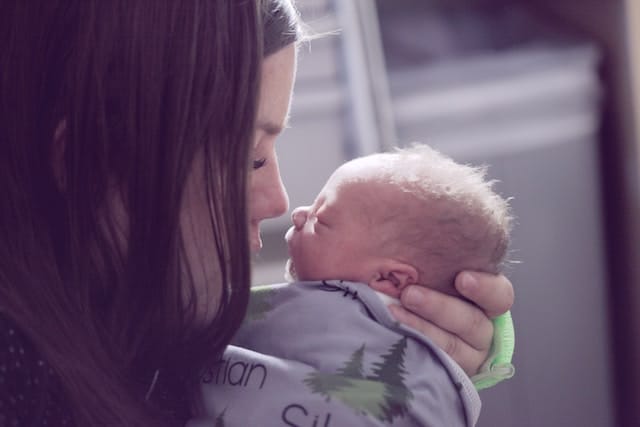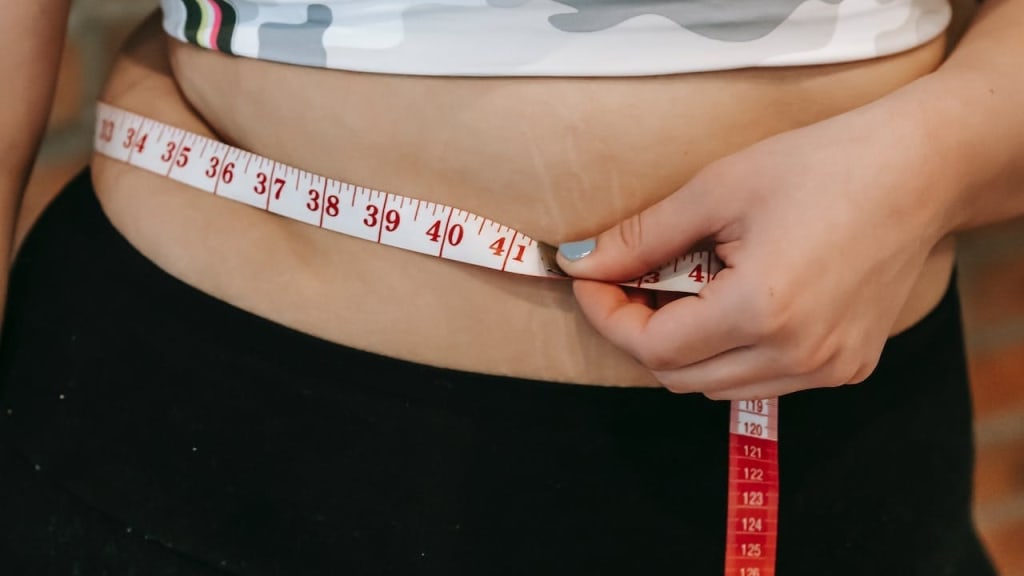Post-Pregnancy Wellness: Weight Loss, Exercise & Nutrition Tips
Congratulations on the arrival of your little one! As you embrace the joy of parenthood, you may be contemplating post pregnancy weight loss and how to shed those extra baby pounds. Millions of new mothers navigate this journey every year, balancing recovery, childcare, and personal wellness goals. In this blog post, we’ll explore the journey of post pregnancy weight loss, exercise after giving birth, and maintaining a nutritious diet for both you and your baby.

Post Pregnancy Weight Loss:

1. Timeline for Losing Baby Weight:
- Gradual Process: Understand that post pregnancy weight loss is a gradual process, taking up to a year to return to pre-pregnancy weight.
- Initial Weight Loss: After delivery, most women lose around 10 to 13 pounds, primarily due to the baby’s delivery and the loss of retained fluids.
2. Factors Affecting Weight Loss:
- Delivery Method Matters: The method of delivery (C-section or vaginal birth) and your body’s healing rate play crucial roles in post pregnancy weight loss.
- Breastfeeding Impact: Breastfeeding burns additional calories, aiding in weight loss. However, maintaining a healthy diet is crucial to support recovery and milk production.
What science tells us:
- Most women retain 5-10 pounds of pregnancy weight one year after delivery
- A healthy postpartum weight loss rate is 1-2 pounds per week
- Complete recovery to pre-pregnancy weight may take 6-12 months
- Your body shape may permanently change even after reaching your pre-pregnancy weight
Remember that every pregnancy and recovery is unique. Your journey will depend on several factors including pre-pregnancy weight, weight gained during pregnancy, genetic factors, lifestyle, and whether you’re breastfeeding.
How Pregnancy Changes Your Body
Pregnancy affects more than just your weight it transforms your entire physiology:
- Abdominal muscles: Pregnancy stretches the abdominal muscles and may cause diastasis recti (separation of abdominal muscles)
- Pelvic floor: Supporting the growing uterus can weaken pelvic floor muscles
- Metabolism: Hormonal fluctuations affect how your body processes nutrients and stores fat
- Breast tissue: Milk production causes breast enlargement and changes in density
Understanding these changes helps set realistic expectations for your recovery and weight loss journey.
Post pregnancy Exercise:

1. When to Start Exercising:
-
Post pregnancy Checkup: Wait until after your post pregnancy checkup, typically around six weeks after delivery, before starting more intense exercises.
-
Customized Approach: The timing varies based on your delivery type, with those having uncomplicated vaginal births potentially resuming light activity sooner.
2. Tips for Creating a Workout Plan:
-
Take it Slow: Listen to your body and follow the 10% rule for increasing activity gradually.
-
Incorporate into Parenting Routine: Integrate short bouts of exercise into your daily routine, such as exercising with your baby or during naptime.
-
Focus on Core and Pelvic Floor: Pay attention to exercises that strengthen your core and pelvic floor, crucial areas affected during pregnancy.
3. Rest Importance:
- Prioritize Rest: Acknowledge the significance of rest in post pregnancy recovery. Deep sleep aids in recovery and supports weight loss efforts.
Post pregnancy Nutrition:

1. Nutrition Tips for Weight Loss:
-
Healthy Protein Intake: Emphasize protein-rich foods like fish, chicken, nuts, and beans to stay full and aid post-exercise recovery.
-
High-Fiber Foods: Include whole grains, fruits, and vegetables for fiber, assisting with post pregnancy constipation and providing quick-burning carbohydrate energy.
2. Foods to Avoid:
-
Limit Sugar and Refined Carbs: Opt for whole grains over refined carbs, as excess sugar can hinder weight loss goals.
-
Minimize Processed Foods: Steer clear of processed snacks and fast food, opting for nutrient-dense options.
3. Nutrition Tips while Breastfeeding:
-
Stay Hydrated: Drink extra non-caffeinated liquids while breastfeeding.
-
Moderate Alcohol Consumption: Limit alcohol intake, allowing at least two hours before breastfeeding to minimize alcohol transfer to breast milk.
-
Adjust Caloric Intake: Gradually decrease calorie intake as breastfeeding or pumping is reduced.
4. Maintaining Healthy Eating Habits:
-
Avoid Skipping Meals: Core meals provide essential fuel; skipping them may lead to unhealthy cravings.
-
Stick to a Routine: Set routine mealtimes and portions, and consider meal kit subscriptions for convenience.
Setting Realistic Goals:
1. Safe Weight Loss:
-
Pre-Pregnancy Weight: Losing excess weight before pregnancy reduces potential risks.
-
Gradual Weight Loss: Aim for a gradual weight loss of about half a kilogram per week while breastfeeding.
Setting SMART Goals For Your Postpartum Journey
Create goals that are:
- Specific: “I will walk for 20 minutes three times this week” versus “I will exercise more”
- Measurable: Track your progress through journaling, apps, or fitness trackers
- Achievable: Start with small wins before tackling bigger challenges
- Relevant: Choose activities you enjoy and that fit your current lifestyle
- Time-bound: Set short-term milestones toward your long-term goals
2. Embracing Your Body:

-
Enjoy a Healthy Lifestyle: Focus on a healthy lifestyle rather than fixating on appearance.
-
Be Proud: Regardless of weight changes, be proud of your body’s achievements in bringing new life into the world.
-
Accept Your Body: Accept your body as it is and focus on health and wellness.
Also read our post on Healthy Weight Gain During Pregnancy: A Complete Guide
Seeking Support and Advice:
-
Consulting Professionals: Talk to your doctor or a dietitian for personalized advice, especially if you have concerns about weight or were overweight before pregnancy.
-
Community Support: Joining active mothers’ groups or seeking help from friends and family can ease the transition into post pregnancy life.
Conclusion:
Navigating post pregnancy wellness involves a personalized approach to weight loss, exercise, and nutrition. Remember, the journey is unique for every individual. Postpartum weight loss timeline is unique to everyone and influenced by numerous factors including your pregnancy experience, recovery process, and current lifestyle. Embrace the process, prioritize self-care, and seek support when needed. Your well-being is just as important as caring for your precious little one.
Remember: Always consult with your healthcare provider before beginning any post-pregnancy weight loss or exercise program, especially if you experienced complications during pregnancy or delivery.





